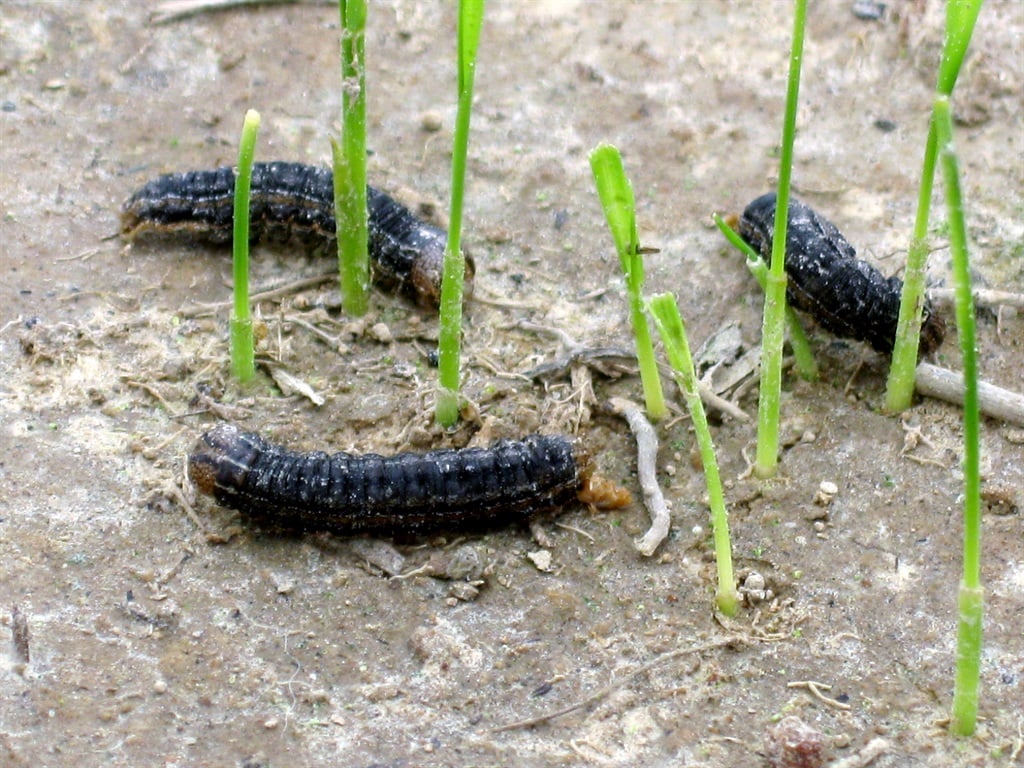
South Africa is facing a possible national disaster over the fall armyworm invasion, which could see a devastating effect on sub-Saharan crop production.
According to senior economist for Grain South Africa, Corne Louw, the extent of the damage will only be known as the crop grows.
“The fact is that if you do not effectively control the fall armyworm, you might have a total crop loss on individual basis,” Louw said.
In response to this widespread threat, a high-level emergency meeting kicked off yesterday in Harare, Zimbabwe, between the United Nations Food and Agriculture Organisation (UN FAO) in collaboration with the Southern African Development Community and the International Red Locust Control Organisation for Central and Southern Africa.
The meeting will run until Thursday, where delegates from south and east Africa are attending in order to tackle “endemic threats in Southern Africa”.
Two delegates from the plant health unit at the department of agriculture, forestry and fisheries are also attending the meeting.
“It is only proper that we send out a statement regarding the outcome of the meeting by Monday,” department spokesperson Bomikazi Molapo said.
The red locusts are coming
Agronomist for the UN FOA, Sina Luchen, told City Press that apart from the threat posed by the fall armyworm, South Africa could potentially be at risk of another unwanted guest, the red migratory locust.
“The International Red Locust Control Organisation for Central and Southern Africa is present at the meeting because they have been monitoring the locusts which are currently present in countries like Tanzania, Malawi and Mozambique,” he said.
Luchen said that the countries present at the meeting have to work together in order to help implement control measures to ensure an infestation of red locusts does not reach our borders.
“Remember, these locusts do not need passports like us humans. They can fly over the border from Mozambique and eat anything in their paths. This is why we need to all be more vigilant about what is happening with these pest infestations,” Luchen said.
The fall armyworm, which has invaded farms in Limpopo, North West, Gauteng, Free State, Mpumalanga and Northern Cape, is difficult and expensive to control, said the UN FAO, and is already causing extensive damage to food crops, mainly maize.
Calls to declare a national disaster
As a result of the widespread threat posed towards South Africa’s crops, the Democratic Alliance this week called on Minister of Cooperative Governance and Traditional Affairs Des van Rooyen to declare the “invasion” of the armyworm a national disaster.
“It is vital that the government respond effectively and efficiently, and as soon as possible. The consequences of not doing so could lead to job losses which our country cannot afford, should farmers lose crops,” the DA’s Annette Steyn said this week.
Spokesperson for the cooperative governance and traditional affairs department, Legadima Leso, told City Press that the issue hadn’t been discussed.
“As far as I am aware, our department is not dealing with this and the relevant departments will have to look into it,” Leso said.
The DA also accused the department of agriculture as being “unacceptably slow to respond” to the report by the plan protection sciences association.
“In fact, they were warned four months ago, in October 2016, by the plan protection sciences association, which confirmed the outbreak of the armyworm in Nigeria and warned that it could spread rapidly,” Steyn said.
What the farmers say
In the last month farmers have been on high alert in an effort to try and ward off the worm, which is native to the Americas and was first reported in West Africa a year ago.
To paint a picture towards the damage that the fall armyworm has caused, City Press spoke to Adel Prinsloo, who has a maize farm in Onderstepoort, north of Pretoria.
She first discovered the presence of the worm on her farm about four weeks ago, and she has had what seems like a losing battle against the pest since then.
“In the last three weeks, I have spent about R50 000 towards purchasing pesticides, and even that doesn’t work against the worm,” Prinsloo said.
On average, over a three-to-four month period, Prinsloo would ordinarily spend about R30 000.
“I am really battling to contain the infestation. They are eating away at everything, including the roots of the maize crops. I just want the government to find a solution because it’s costing me a lot of money and I am not sure how much longer I can go on like this for,” she said.
Armyworm invasion could cost SA billions
The International Association for The Plan Protection Sciences released a report in October last year, outlying the risks that the armyworm posed to crop production in Africa, with an estimated damage of $400 million (about R5.2 billion) caused by the worm in Brazil alone.
“In climatic regions allowing constant generations such as in Brazil, the third largest maize producer in the world, S. frugiperda (fall armyworm) is considered as the most important pest on this crop causing a damage estimated at more than $400 million annually,” the report said.
If these figures are anything to go by, the damage that crops in Africa will undergo as a result of the worm could be detrimental to the livelihoods of millions.
Ultimately, the threat of the army fall worm coupled with the red locust and other crop-related diseases has led to this being a wake-up call for the southern African region, according to Luchen.
“We all need to work together in order to come up with viable options and control methods, including early warning detection, which is key in the fight against food security being compromised. It is about information sharing and understanding the pests. Once we understand them, we can fight them,” he said.
| |||||||||||||
| |||||||||||||




 Publications
Publications
 Partners
Partners








